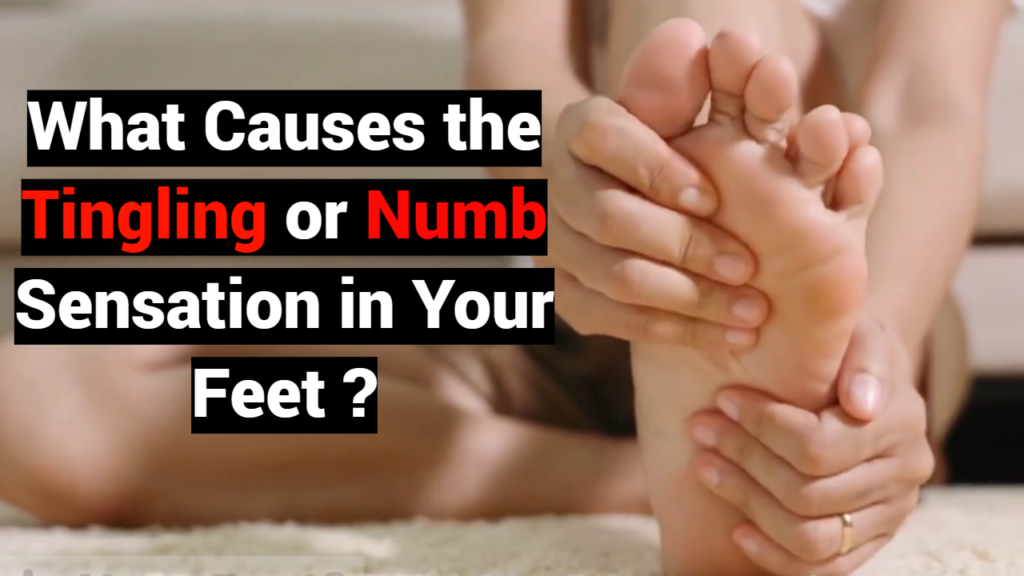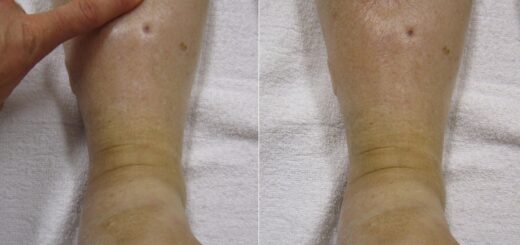What Causes the Tingling or Numb Sensation in Your Feet?
What if I told you that the sensation in your feet holds secrets that can unravel a fascinating medical mystery? That’s right, today we’re delving into the captivating world of tingling and numbness, exploring the causes behind those mysterious sensations in your precious feet.
The tingling or numb sensation in our feet can be attributed to various scientific reasons, each shedding light on a different aspect of our body’s intricate systems. Let’s explore some of the primary causes behind this phenomenon:
1. Nerve compression
Nerve compression, also known as nerve entrapment or pinched nerve, occurs when a nerve is compressed or squeezed by surrounding tissues, such as muscles, bones, tendons, or ligaments. Under normal circumstances, nerves transmit electrical signals along their pathways. These signals allow us to feel and perceive different sensations, including touch, temperature, and pain. When external factors, such as tight footwear, injury, swelling, or repetitive motions, exert pressure on a nerve in the foot, it becomes compressed. This compression disrupts the flow of electrical signals along the nerve pathway. The altered or interrupted signals can manifest as tingling sensations. It often feels like pins and needles or a slight electric-like sensation in the foot. This occurs as the nerve attempts to transmit signals despite compression and interference. In more severe cases of nerve compression, the nerve’s ability to transmit signals may be significantly impaired. As a result, the brain may receive minimal or no information from the affected area. This absence of sensory input leads to numbness in the foot, where you may not feel any sensation at all.
2. Peripheral Neuropathy
Peripheral neuropathy refers to damage or dysfunction of the peripheral nerves, which are the nerves outside the brain and spinal cord. Peripheral neuropathy can result from various factors, such as underlying medical conditions, injuries, infections, toxins, or even certain medications. These factors can damage the peripheral nerves, interfering with their ability to transmit signals accurately. The damaged peripheral nerves struggle to transmit signals effectively from the feet to the brain and vice versa. The signals may become distorted, slowed down, or even completely blocked due to the damaged nerve fibers. The impaired signal transmission can lead to abnormal sensations in the feet, including tingling or numbness. As the damaged nerves attempt to transmit signals, they may send mixed or altered messages to the brain, resulting in tingling sensations similar to pins and needles. In more severe cases, the signals may not reach the brain at all, leading to numbness in the feet. It’s important to note that peripheral neuropathy can have various underlying causes, including diabetes, autoimmune diseases, vitamin deficiencies, infections (such as Lyme disease or HIV), certain medications, hereditary factors, and exposure to toxins like heavy metals or chemicals. Proper diagnosis and identification of the underlying cause are crucial for appropriate treatment and management of peripheral neuropathy.
3. Poor Circulation
Poor circulation occurs when the blood flow to the feet is restricted or compromised. This can be caused by various factors, including underlying medical conditions or diseases. Some common causes of poor circulation include peripheral artery disease (PAD), blood clots, atherosclerosis, Raynaud’s disease, or even constriction of blood vessels due to certain medications or lifestyle choices. Managing the underlying cause is crucial to improving circulation and relieving the tingling or numb sensation in the feet. Treatment options may include lifestyle modifications (such as regular exercise, quitting smoking, and maintaining a healthy weight), medications to improve circulation, and managing underlying medical conditions.
4. Nerve Disorders
Nerve disorders can lead to that unsettling tingling or numb sensation we feel in our feet. Conditions like sciatica, tarsal tunnel syndrome, Morton’s neuroma, nerve entrapment or compression, spinal issues, and other nerve disorders can disrupt the normal function of the nerves, causing these abnormal sensations. Whether it’s the compression of the sciatic nerve, entrapment of the tibial nerve, thickening of nerve tissue, spinal conditions, or other factors, these disorders disturb the signals from our feet to the brain, resulting in tingling or numbness. Seeking proper diagnosis and treatment from healthcare professionals is crucial in managing these symptoms and improving foot health.
5. Spinal issues
Spinal issues can cause tingling or numb sensations in the feet. Conditions like herniated discs, spinal stenosis, spinal tumors, spinal cord injuries, degenerative disc disease, spondylolisthesis, and cauda equina syndrome can lead to nerve compression or damage. This results in abnormal sensations in the feet, such as tingling or numbness. Seeking medical diagnosis and treatment is essential for managing these symptoms and improving spinal and foot health.
6. Vitamin Deficiencies
Vitamin deficiencies, particularly in vitamins B12, B6, D, E, and B1 (thiamine), can contribute to tingling or numb sensations in the feet. These deficiencies can lead to peripheral neuropathy and nerve damage, causing abnormal sensations. Proper diagnosis, dietary changes, and supplementation are key in addressing these deficiencies and promoting nerve health. Maintaining optimal vitamin levels is crucial for preventing such sensations and ensuring overall well-being.
7. Other Factors
Several other factors can contribute to the tingling or numb sensation in the feet. These include diabetes, alcoholism, certain medications, autoimmune disorders, infections, trauma or injury, circulatory disorders, and spinal misalignment.
It’s important to note that while these are common causes, proper diagnosis by a healthcare professional is crucial to determine the specific underlying condition causing the sensations in your feet. Treatment options will vary depending on the cause, and addressing the underlying issue often helps alleviate or manage the tingling or numbness.
Remember, our bodies are magnificent and complex, and tingling or numbness in our feet acts as an alarm system, signaling that something may require attention. By understanding the scientific reasons behind these sensations, we can actively engage in promoting our foot health and overall well-being.




















